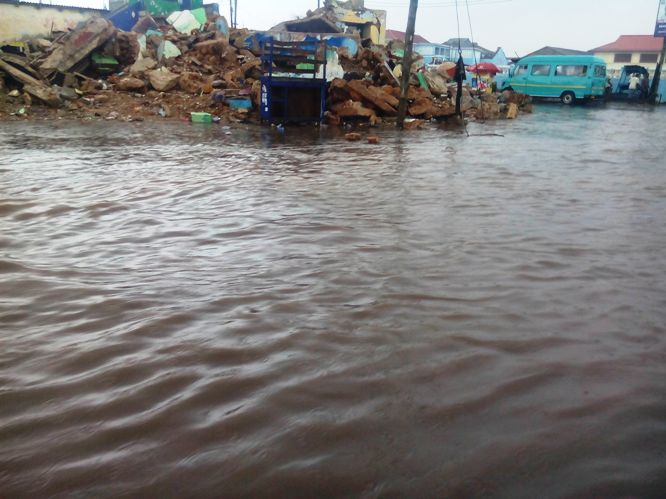Government should ensure death-free rainy season – Former Deputy Minister
 Bernice Adiku Heloo, former Deputy Minister of Environment, Science Technology and Innovation, has urged government to ensure that no flood related deaths occurs this year, as the rainy season approaches.
Bernice Adiku Heloo, former Deputy Minister of Environment, Science Technology and Innovation, has urged government to ensure that no flood related deaths occurs this year, as the rainy season approaches.
Harping on sanitation, the former Deputy Minister, who is the MP for Hohoe Constituency, made a number of suggestions, including strict enforcement of existing bye-laws on sanitation and investment in sustained behavioural change, to avert floods and associated problems.
“The President must make pronouncements related to sanitation on all platforms,” Dr Heloo insisted.
Addressing a press conference at Parliament House, on the approaching rains, the MP decried the state of sanitation in the country, describing it as a “major challenge in Ghana, with Agbogbloshie, in Accra, as one of the most toxic places in the world.”
Accra had over the years been hit by devastating floods, largely caused by the choking of major drains with silt and garbage.
“Markets, lorry parks and drains are all engulfed in filth and unbearable stench”, Dr Heloo said, noting that, the “human cost is high as these unsanitary conditions expose us to diseases, death and loss of man hours.”
The MP, a Development Expert, referred to Goal Six of the United Nations Sustainable Development Goals, which aims at providing clean drinking water and good sanitation for everyone everywhere and urged a prompt and long term solution for sanitation management countrywide.
Dr Heloo said the challenges of sanitation include inadequate human and financial capacity for sanitation management, insufficient research on sanitation, inadequate funds to pay private waste management companies and inability to effectively monitor environmental sanitation due to the unavailability of accurate data.
Other challenges are the lack of intense and sustained public education on sanitation, inadequate law enforcement, and the nonchalant attitude named “not in my backyard syndrome”, insufficient recycling and waste management plants as well as inadequate inter-institutional cooperation and collaboration.
“These challenges remind us of the need to prioritise sanitation’ we are where we are because we have not prioritised sanitation management in the country, Dr Heloo said, adding, “we have potent environmental laws, plans and policies, which remain on paper because implementation is fraught with many challenges.”
She stressed that the national sanitation crusade must be intensified and must involve all stakeholders, including schools, churches and the mosques, provision of stationery waste bins at vantage points across the major cities and towns; and the promotion of the use of paper bags and the use of biodegradable plastics.
The MP for Hohoe, who used the interaction to condemn child slavery, called for increased budgetary allocation to sanitation activities and urged the media and civil society organisations to engage more actively in budget tracking and reporting on sanitation.
Source: GNA
